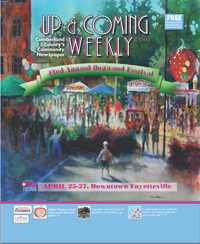 The little girl reading books under bed covers by flashlight is a stereotype for sure, but stereotypes develop for a reason. Zillions of little girls — and some little boys — do this every night.
The little girl reading books under bed covers by flashlight is a stereotype for sure, but stereotypes develop for a reason. Zillions of little girls — and some little boys — do this every night.
So do some big girls, including this one, though these days I confidently read by bedside light secure in the knowledge that my mother is not coming to curtail my bedtime reading.
Reading has been a large part of my life since childhood, and I vividly remember seeing a newspaper photo of a book burning somewhere. I was stunned and could not understand why anyone, anywhere would burn a book. I still feel that way.
Others, however, do not.
Americans find ourselves beset by a new generation of “book banners.” Apparently actual book burnings are a bridge too far for today’s crowd of idea deniers. This group seeks not roaring bonfires but restriction and possibly regulation of what adults like you and me and our children can and cannot read. Our First Amendment guarantee of American free speech is venerated until it offends the banning crowd.
Then they appear en masse at school and library board meetings, legislative committee hearing rooms, online and on television, telling the rest of us why we cannot read about issues that make them uncomfortable. This is happening all over our nation, and North Carolina is no exception.
Their no-no’s list our nation’s long history of racism and antisemitism, including historical events like our nation’s only successful coup d’état in 1898 Wilmington. (Thank goodness the January 6th coup was unsuccessful!) Other no-no’s revolve around human sexuality, including reproduction and gender differences. Less prominently but still frowned upon by the book banning crowd are the Holocaust, Apartheid, and the early 20th century eugenics movement. First-hand accounts of any such experiences—slave narratives, Holocaust memoirs, and the like are particularly to be avoided, probably because they resonate with human suffering.
As a child I was puzzled by the idea that there were some topics some people did not want others to know about or to discuss. If I were curious about something, I generally asked my parents who answered my questions in a way I could understand.
As an adult, I understand why some people do not want certain information available.
They are afraid.
They are afraid of our nation’s racist history. They are afraid of differences in human sexuality. They are afraid of aspects of our history and our society that do not line up with their own world views. Other people’s world views be darned. If a fact or an idea does not align with their own thinking, it is a threat to be stomped down.
Uncomfortable and unwelcome truths must be at least ignored and in more extreme circumstances, lied about even in the face of overwhelming evidence and experience.
This is not new in the United States. Our Declaration of Independence and our Constitution notwithstanding, tolerance has rarely been our long suit. Remember Prohibition of the 1920s? Our nation adopted a Constitutional amendment to prohibit the production and sale of alcohol and wound up with the “Roaring 20s,” an era fueled by illegal alcohol.
If the internet has taught us anything, it is that the world — and our nation — possess endless diversity, most of it neither good nor bad, just different from what we may be accustomed to.
I have no right, God given or otherwise, to tell you what to read, to think, or to believe, and you have no right to tell me.
Beyond that, forcing others to behave in certain ways simply does not work, as we should have learned 100 years ago from Prohibition.
Now, go to the library and get a book that suits you, not someone else!

 How to resolve AdBlock issue?
How to resolve AdBlock issue? 









